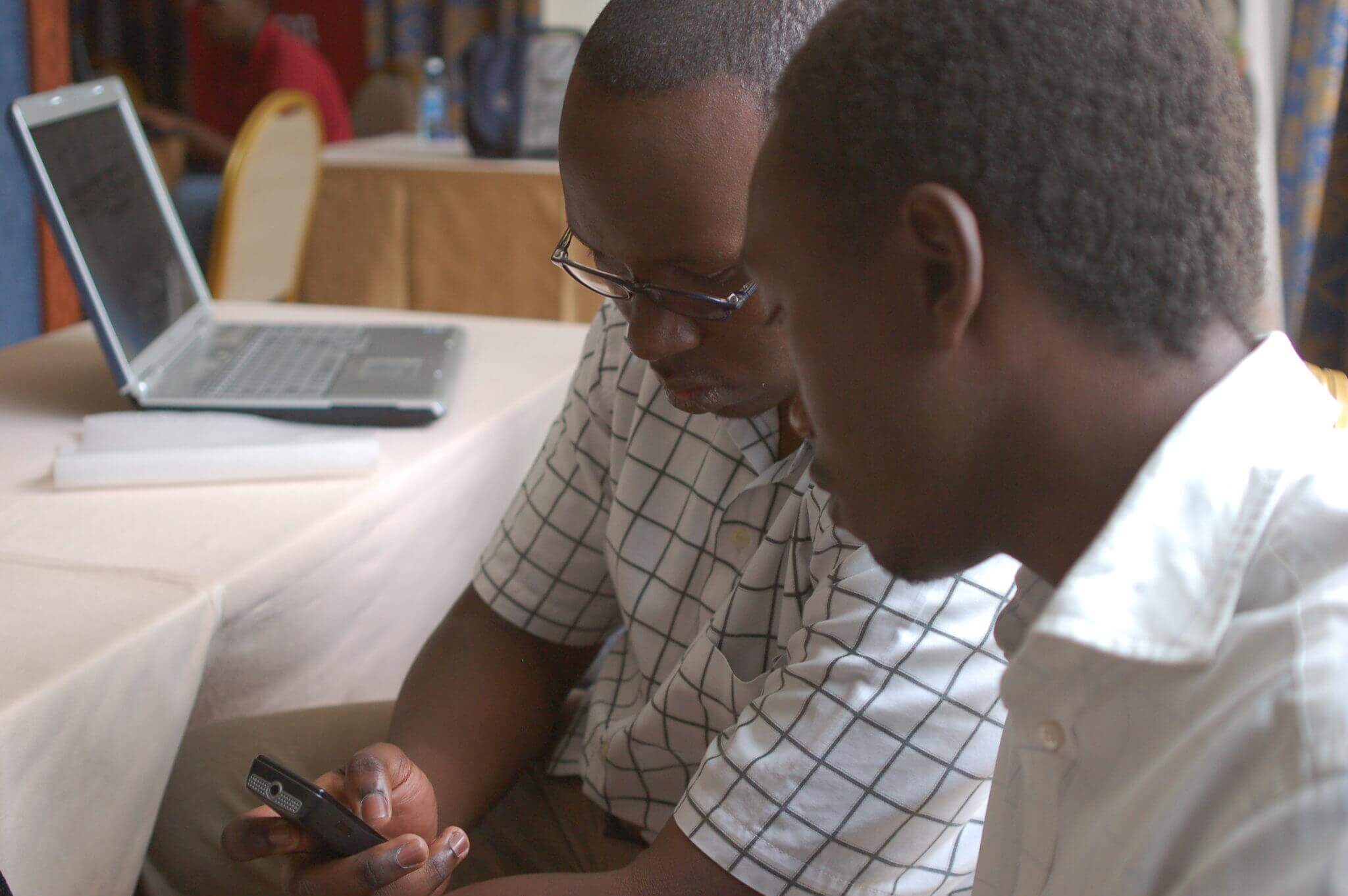Kenya, like other African nations, is experiencing a rapid increase in its youth population. More than 60% of its citizens are under the age of 24. This phenomenon offers both great economic opportunity and a significant challenge to create the number of jobs needed to absorb the one million young people who join the workforce annually.
Recent statistics estimate that 18.5% of Kenyans aged 15-24 are unemployed, and more than 26% are underemployed (not having enough paid work or not doing work that makes full use of their skills and abilities). As we have seen in countries around the world, high levels of youth unemployment and underemployment pose serious threats to a country’s economic and social prosperity.
Solving For a Young Workforce
Market-driven approaches to youth development are key to expanding employment opportunities for young Kenyans. Resonance worked on the U.S. Agency for International Development (USAID)-funded Kenya Youth Employment and Skills (K-YES) project to develop and implement private sector partnerships to enhance opportunities for entrepreneurship and workforce development for Kenyans aged 18-34 who lack a high school education.
As Resonance’s role on K-YES wrapped up recently, we’d like to pause and reflect on the promising shared value partnerships brokered through this project that continue to affect the lives of thousands of young Kenyans.
Companies Supporting Youth Entrepreneurship in Kenya
The following short-list of Resonance-led private sector partnerships were designed and implemented to enhance youth entrepreneurship and employment in Kenya:
Coca Cola/K-YES Youth Distributors
K-YES partnered with Coca Cola Ltd. to engage youth as local distributors of Coca Cola products in the nine K-YES focal counties within Kenya. Through this collaboration, K-YES and Coca Cola provided business skills training, linkages to asset financing for Coca Cola products, and point-of-sale inputs such as cooler boxes, refrigerators and kiosks. By increasing business and professional skills and engaging youth in its value chain, Coca Cola can effectively penetrate new markets and increase distribution of its products within Kenya.
IBM/K-YES Digital Literacy and Upskilling
Through this public-private partnership, K-YES and IBM integrated IBM’s Digital Nation Africa (DNA) digital literacy curriculum into the Information Communications Technology curricula offered through vocational training centers in Kenya. IBM benefitted from the opportunity to roll out its DNA platform to new markets, and K-YES beneficiaries used the platform to gain digital literacy skills, access labor and market information, and utilize its online jobs portal.
Kenya Commercial Bank Foundation (KCBF) Agribusiness & Finance
In partnership with KCBF, K-YES trained Kenyan youth in agribusiness and soft skills, and provided low interest loans to support youth-led start-up ventures by linking them with capital and assets. K-YES also provided a pipeline of enrollees in KCBF’s flagship 2Jiajiri program, which links youth to jobs and income-generating activities by developing their technical skills in sectors such as agribusiness, automotive engineering, beauty and personal care, building and construction, and domestic services.
Syngenta/Twiga Foods/K-YES Agricultural Value Chains for Youth
K-YES supported youth engagement throughout the agricultural value chain through partnerships with Syngenta Ltd./Syngenta Foundation and Twiga Foods. Syngeta supplies agricultural inputs at a subsidized rate, supports field extension services, provides agronomic support, and facilitates linkages to off-takers for young farmers who receive agribusiness training through K-YES. Twiga Foods works directly with K-YES farming groups as an off-taker of food products, which provides a reliable pipeline of produce for Twiga Foods distribution sites.
Orkistudio/K-YES Supporting Women in Construction
Through this collaboration, K-YES and Orkistudio—a socially conscious design/build, construction and social enterprise firm—jointly support curriculum development for Competency-Based Education Training (CBET) construction courses offered through Kenyan training centers. K-YES helps to mobilize youth, with a particular focus on young women, to undergo training, and Orkistudio links trainees with job market opportunities. In particular, this partnership supports Orkistudio’s Build Her initiative, which aims to increase employment opportunities for young women in the construction sector.
Strategies for Youth Employment Efforts
Youth unemployment and underemployment are particularly prevalent in African countries such as Kenya that are experiencing a pronounced “youth bulge” and struggling to align job creation with demand. As we consider possible solutions, a focus should be placed on market-driven approaches that cultivate innovation and entrepreneurship to create new market opportunities and support Kenya’s Journey to Self Reliance. The following strategic priorities offer promise for future employment efforts in Kenya and elsewhere:
1. Engage with angel investors, incubators, accelerators, impact investors, and others to foster more entrepreneurship and innovation, and grow locally-led solutions.
This includes organizing open innovation competitions, providing business incubation and alternative financing models, and strengthening connections with informal learning opportunities, such as through maker centers. This approach can also serve to create new markets through innovation in frontier economies where existing markets do not address the needs of the masses, or organize companies around a shared challenge such as combatting environmental degradation. Innovation challenges that involve ongoing mentorship and skills development, access to finance, and peer-to-peer collaboration are particularly successful in growing and scaling youth-led business ventures. Select examples of strong initiatives to promote entrepreneurship and innovation include the Young Africa Leaders Initiative (YALI), Securing Water for Food, and the Young Southeast Asian Leaders Initiative (YSEALI) World of Food Innovation Challenge.
2. Ensure that vocational, professional and soft skills trainings align with market demand.
Market systems analyses can help determine which industries, careers, and skillsets to invest in to ensure young people emerge from trainings positioned to meet current and future market demands. A market-systems approach with a youth-inclusive lens could serve to incorporate them as a stakeholder within value chains, identify external and internal barriers they face in participating—such as information and skills needs—and identify market actors that can facilitate access through targeted interventions. For example, young Kenyans express disinterest in traditional farming and agricultural practices used by their parents and grandparents, but they are very interested in agribusiness and “green revolution” agricultural practices and innovations which could help revolutionize Kenya’s massive agricultural sector.
3. Pursue an ecosystem approach to unlock shared value opportunities that align Sustainable Development Goals (SDGs) and business interests.
Under this approach, we can apply a “dual client lens” (engaging youth not just as a beneficiary but as a client, thought-partner, and informant) to map the key stakeholders that need to be engaged in the workforce ecosystem and determine where the links aren’t working. This includes analyzing the following partners:
- Motivators provide incentives to encourage innovation. They include parents and community members, donors, corporates, and implementing partners.
- Problem Solvers innovate solutions to navigate challenges and barriers. They include startups, small and medium enterprises, and corporate research and development teams.
- Enablers provide linkages to resources, skills, knowledge and opportunities (incubators, accelerators, angel investor networks, universities, and donor-funded projects), as well as link to government/development priorities (relevant local and national level government ministries and bureaus, technical and vocational education and training centers, and other public education/training centers).
- Conveners help get the right stakeholders to the table and facilitate linkages among networks. They include donor-funded projects, co-working spaces, incubators, etc.
- Youth are very much a part of the ecosystem and market system, and should be involved not only as beneficiaries but also as key stakeholders, informants, and clients. They fit into each of the above categories in various ways, and should be consulted and engaged throughout the design and implementation of any youth-focused intervention.
Young people in emerging economies are more skilled and better connected than ever, yet their unemployment and underemployment remain pressing challenges in many nations. Harnessing the innovation, skills, and sheer volume of the world’s youth creates promise for bolstering frontier markets and growing local economies. Yet, if we fail to create opportunities for them, we face imminent threats to economic development, social prosperity, and community safety and wellbeing. Youth workforce development must be approached strategically to achieve impact. It is critical that we pursue opportunities to engage the private sector, foster a culture of innovation, and link young people to the necessary skills and resources so they may develop locally grown solutions to meet market needs.
Photo by Erik Hersman.


